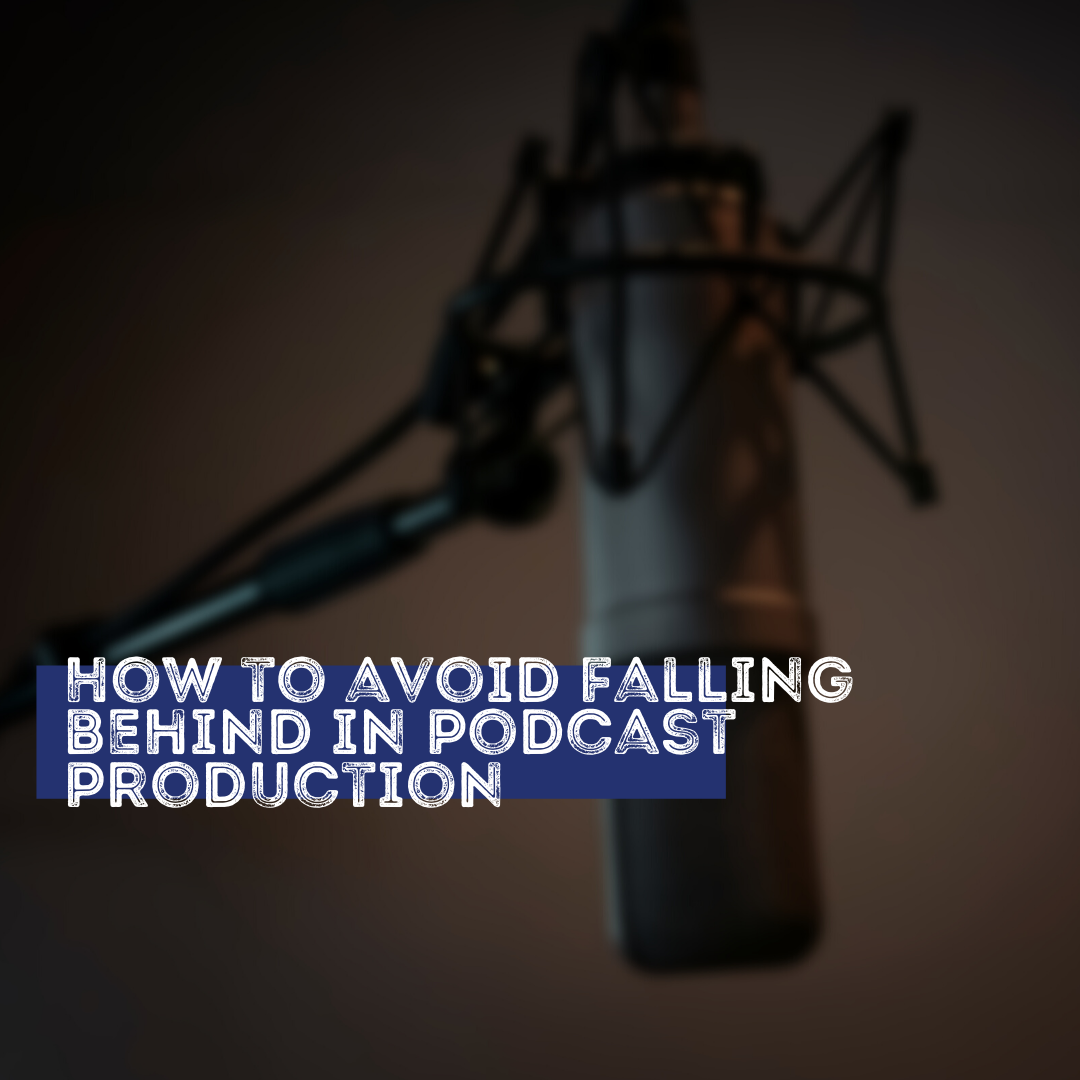
 Getting behind in podcast production is the last place you want to be. When this happens, your content suffers.
Getting behind in podcast production is the last place you want to be. When this happens, your content suffers.
If you are committed to keeping your schedule, you’ll rush to get something put together and the quality of that production may suffer.
Or, you may end up delaying the release of your next episode. This will disrupt the consistency you’ve developed with your past releases.
It’s important to remember that your audience is comprised of human beings. And human beings are creatures of habit. Once we get used to something happening at a certain time, we come to rely on that and expect to be satiated when that time comes.
Years ago, when network TV was huge, the most coveted time slot on NBC was Thursday night at 9:00pm. For years, we could rely on NBC putting their best programs in that time slot. Cheers, Seinfeld, Friends, The Office…four of the best sitcoms of all time, and they were all scheduled for Thursday at 9:00pm every week. Consistent as gravity.
If you were into those shows, you knew where you’d be every Thursday at 9:00pm.
Today, thanks to on-demand and streaming services, it’s a little different. BUT, when you train your audience to expect new podcasts from you every Monday or every Thursday, they get used to it. And when you don’t deliver, they may look for another podcast. If you CONSISTENTLY don’t deliver, they’ll most likely move on to someone who does.
If you keep your podcast production on a steady schedule and prepare your content in advance, you’ll nip this issue in the bud before it ever becomes a problem.
ALSO READ: A Simple Exercise For Coming Up With Podcast Content Ideas
When you developed your initial podcast plan, you should’ve determined how much time you had to dedicate to your podcasting per week. If your time is limited, create shorter episodes so you still have time available for editing and promoting those releases. This will also allow you to dedicate time to batching episodes, or getting multiple episodes recorded, produced, and ready for release in advance so you’re not constantly putting yourself up against a deadline.
Bank multiple episodes so you can plot a schedule for your releases instead of taking a shotgun approach where you’re throwing content together at the last minute.
Plan your podcasting responsibilities into your weekly schedule. Personally, I typically set my schedule up for the next week on Fridays or Saturdays and I determine when I can work on my podcast, when I can work on my clients’ podcasts, and when I can work on other initiatives in my business. Managing your time wisely and literally blocking time in your schedule to dedicate to your podcast every week will ensure your production schedule runs smoothly.
If you do need to plan a break, be sure to announce it on your show, via live video, social media posts, or a combination of the three. Simply state that there won’t be a new episode coming out this week or for however long you need to break. Don’t break for too long, but don’t overextend yourself either. If you need a week or two to catch up, do it. Just make sure your audience knows and, at the same time, encourage them to listen to past episodes in your archives to keep them engaged.
Keeping your production schedule on track requires planning and commitment. Do both, and your production scheduling going off the rails will never be a problem for you.





One thought on “How to Avoid Falling Behind In Podcast Production”